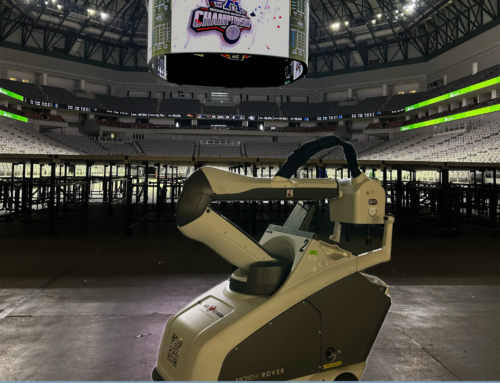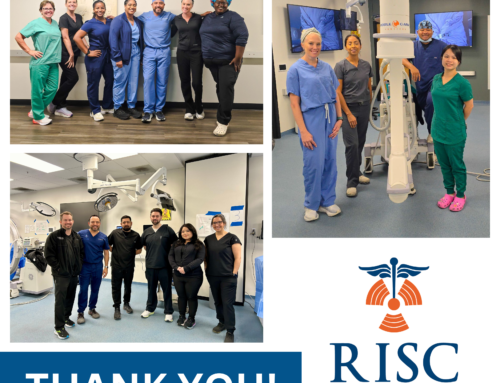How to Become a Radiologic Technologist: A Comprehensive Guide
Radiologic technologists, or rad techs, play a crucial role in the medical field, operating imaging equipment to help diagnose and treat patients. The path to becoming a rad tech in Texas involves specific education, certification, and licensing steps. Additionally, signing on with a specialized staffing agency like RISC Staffing can offer you a flexible and rewarding career.
In this comprehensive guide, we’ll walk you through every step of becoming a radiologic technologist in Texas, from initial education to landing your first job and exploring opportunities with RISC Staffing.
1. Understanding the Role of a Radiologic Technologist
Before diving into the steps to become a rad tech, it’s important to understand what the job entails. Radiologic technologists are responsible for:
- Operating imaging equipment (X-rays, MRI machines, CT scanners)
- Preparing patients for procedures
- Ensuring patient safety by using proper radiation protection techniques
- Maintaining imaging equipment
- Working closely with radiologists to interpret images
2. Educational Requirements
High School Preparation
Your journey begins in high school, where a strong foundation in math and science is essential. Courses in biology, chemistry, physics, and advanced mathematics will prepare you for the rigorous curriculum of a radiologic technology program.
Choosing the Right Radiologic Technology Program
In Texas, you must complete an accredited radiologic technology program. These programs can be found at community colleges, technical schools, and universities. Here’s what you need to look for:
- Accreditation: Ensure the program is accredited by the Joint Review Committee on Education in Radiologic Technology (JRCERT). Accreditation ensures the program meets high standards of education and is recognized by certification bodies.
- Degree Options: Most programs offer an Associate of Applied Science (AAS) in Radiologic Technology. Some universities also offer Bachelor’s degrees in the field.
- Program Length: Typically, an AAS program takes about two years to complete, while a Bachelor’s degree program takes about four years.
Core Curriculum
The core curriculum in a radiologic technology program includes:
- Anatomy and Physiology
- Radiation Physics
- Radiographic Procedures
- Patient Care
- Radiation Protection
- Medical Imaging
Clinical rotations are a critical part of the curriculum, providing hands-on experience in real healthcare settings under the supervision of experienced professionals.
3. Certification and Licensing
Certification by the American Registry of Radiologic Technologists (ARRT)
After completing your radiologic technology program, the next step is to get certified by the ARRT. Certification involves passing the ARRT exam, which tests your knowledge and skills in radiologic technology.
ARRT Exam Preparation
- Review the Exam Content: The ARRT exam covers patient care, safety, image production, and procedures. Familiarize yourself with the detailed content specifications provided by ARRT.
- Study Resources: Utilize textbooks, online resources, and study groups. Many programs offer review courses specifically designed to prepare students for the ARRT exam.
- Practice Exams: Taking practice exams can help you get used to the format and time constraints of the actual test.
Texas State Licensing
In addition to ARRT certification, you must obtain a state license to practice as a radiologic technologist in Texas. The Texas Medical Board (TMB) is responsible for licensing.
Licensing Requirements
- Application: Submit a completed application form to the TMB along with the required fee.
- Background Check: Undergo a criminal background check.
- Verification of Education and Certification: Provide proof of completion of an accredited radiologic technology program and ARRT certification.
- Continuing Education: Texas requires continuing education to maintain licensure. You must complete 24 hours of continuing education every two years.
4. Gaining Experience
Entry-Level Positions
Upon obtaining your certification and license, you can start applying for entry-level positions. Common settings for radiologic technologists include:
- Hospitals
- Outpatient clinics
- Imaging centers
- Physician offices
Building Your Resume
- Clinical Experience: Highlight your clinical rotations and any special procedures you assisted with during your education.
- Certifications: Include your ARRT certification and Texas state license.
- Professional Skills: Emphasize skills such as patient care, operation of imaging equipment, and adherence to safety protocols.
5. Career Advancement
Specializations
Radiologic technologists can specialize in various areas to advance their careers and increase their earning potential. Some specializations include:
- Computed Tomography (CT)
- Magnetic Resonance Imaging (MRI)
- Mammography
- Radiation Therapy
Advanced Certifications
Obtaining advanced certifications from ARRT or other professional organizations can further enhance your qualifications. These certifications often require additional coursework and passing specialized exams.
Continuing Education
Continual learning is vital in the ever-evolving field of radiology. Attend workshops, seminars, and conferences to stay updated on the latest technologies and practices.
The Benefits of Joining RISC Staffing
Flexible Work Schedule
One of the significant advantages of working with RISC Staffing is the flexibility it offers. Whether you prefer short-term assignments, part-time work, or full-time positions, RISC Staffing can tailor opportunities to fit your lifestyle and career goals.
Diverse Work Environments
Working with RISC Staffing allows you to experience different healthcare settings, from large hospitals to small outpatient clinics. This diversity not only enhances your skills but also helps you find the work environment that best suits you.
Competitive Pay and Benefits
RISC Staffing offers competitive compensation packages, including health benefits, retirement plans, and professional development opportunities. As a staffing agency specializing in radiology, we understand the unique needs of rad techs and strive to provide the best possible support.
Professional Support
Our team at RISC Staffing is dedicated to your success. We offer career counseling, resume assistance, and interview preparation to help you secure the best positions in the field.
Steps to Sign Up with RISC Staffing
Initial Application
Visit our website and fill out the online application form. Provide your contact information, educational background, work experience, and certifications.
Onboarding
After the interview, you’ll go through our onboarding process, which includes background checks, verification of credentials, and orientation. We’ll also provide you with any necessary training specific to your assignments.
Assignment Matching
Based on your preferences and qualifications, we’ll start matching you with available assignments. You’ll have the flexibility to accept or decline assignments based on your schedule and career objectives.
Ongoing Support
Throughout your assignments, RISC Staffing will provide continuous support. We’re here to address any concerns, offer guidance, and ensure you have a positive and rewarding experience.
All in all,
Becoming a radiologic technologist in Texas is a rewarding career path that offers numerous opportunities for growth and specialization. By following the outlined steps, from education and certification to gaining experience and pursuing advanced certifications, you can establish a successful career in this field.
Partnering with a specialized staffing agency like RISC Staffing can further enhance your career by offering flexibility, diverse work environments, and professional support. Whether you’re just starting or looking to advance your career, RISC Staffing is here to help you achieve your goals.
For more information and to start your journey with RISC Staffing, visit our website and apply today. Your future as a skilled and valued radiologic technologist awaits!






